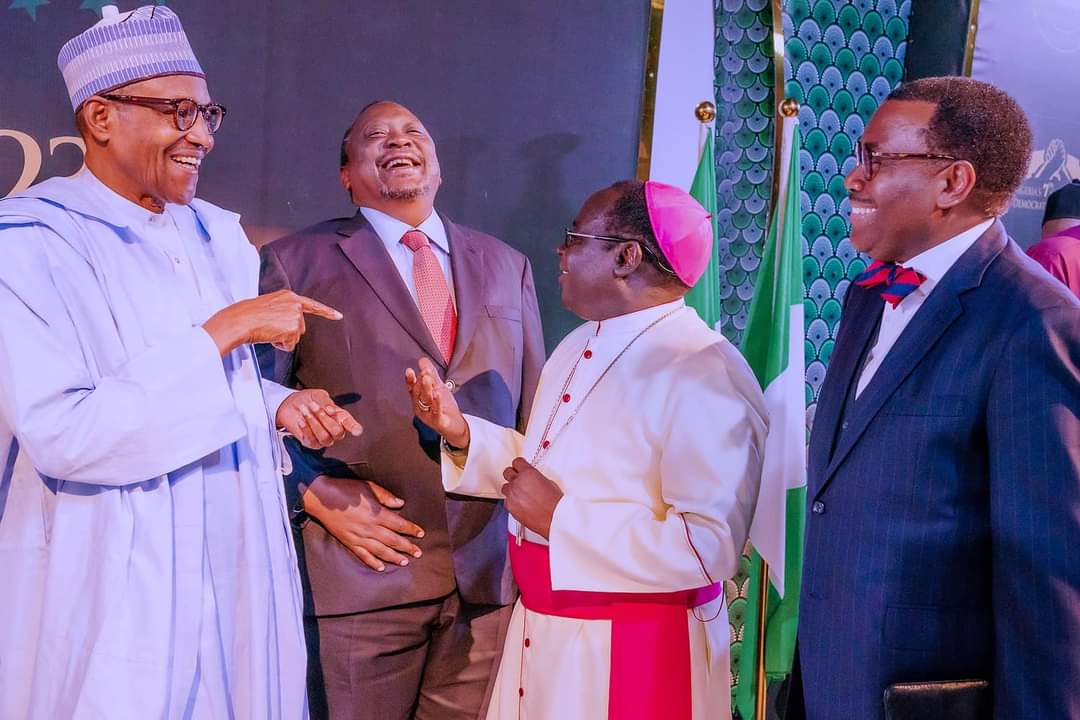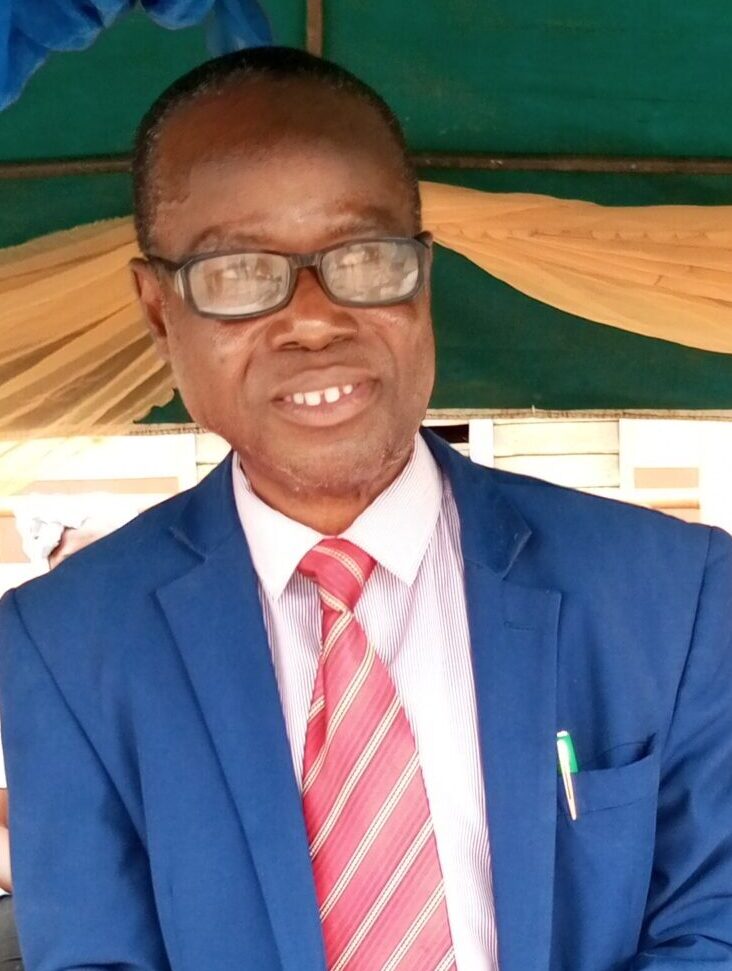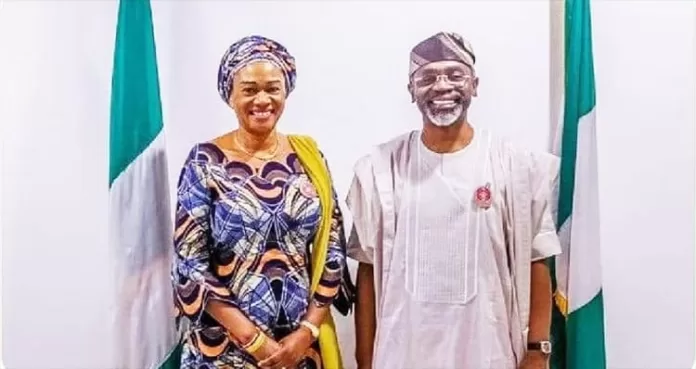A former President of Kenya, Mr. Uhuru Kenyatta, shed light on the detrimental effects of divisive narratives on democracy and development in Africa.
In a thought-provoking lecture titled “Deepening Democracy for Development and Integration,” at the 2023 presidential inauguration lecture held at the International Conference Center in Abuja, on Saturday, Mr Kenyatta emphasized that these narratives sow the seeds of intolerance, ethnicity, and disunity.
He narrated the experience in Kenya on the profound impact of divisive narratives on the progress of democracy and development, urging the incoming administration to embrace alternative approaches.
Divisive narratives often contribute to political polarization, further exacerbating existing divisions within society. When citizens become entrenched in opposing ideological camps, the prospect of constructive dialogue and compromise diminishes. Such polarization not only hinders democratic progress but also fosters an environment prone to political instability, the former president explained.
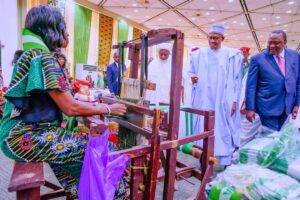

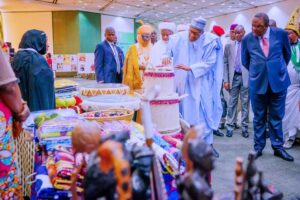
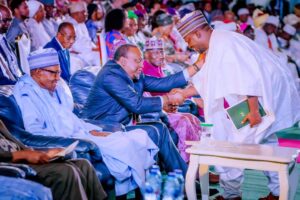
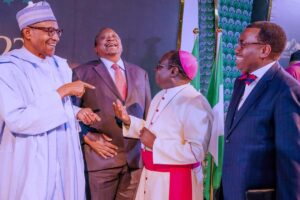
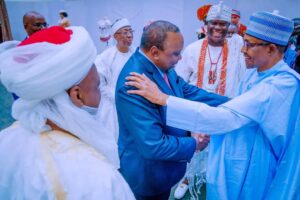
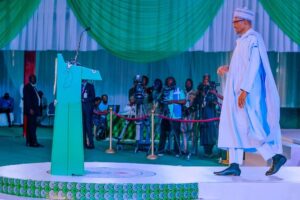
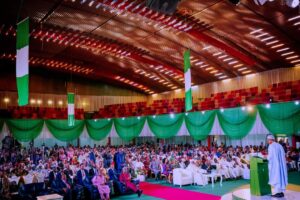
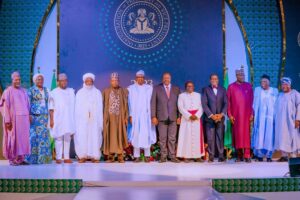
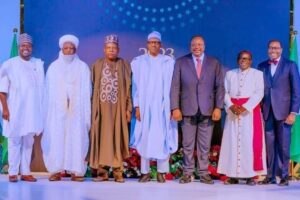
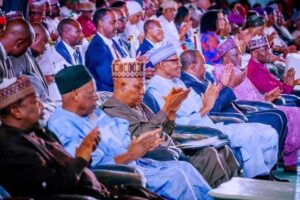
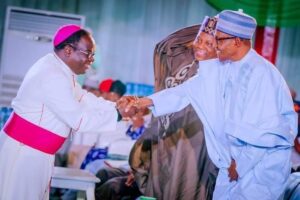
Mr. Kenyatta’s lecture emphasized the need for the incoming administration to embrace new ways of doing things by discarding divisive narratives and promoting inclusive dialogue,
The Secretary to the Government of the Federation and Chairman of the Presidential Transition Committee, Mr Boss Mustafa, highlighted the significance of evaluating democratic efforts, through a comprehensive assessment of democratic values, institutions, and processes,
Nigeria, he said, can identify areas for improvement and implement necessary reforms.
This commitment to introspection ensures the growth and sustainability of democracy in the country, the SGF added.
Unity in diversity
The Sultan of Sokoto, Alhaji Muhammad Sa’ad Abubakar III, highlighted the crucial need for unity and cooperation, emphasizing the importance of continued collaboration within the nation.
The sultan, who reechoed his message delivered at the inauguration prayer on Friday, underscored the importance of unity, citing it as a key factor in the country’s success and emphasized the power of a shared sense of purpose and harmony, noting that it can lead to collective strength and progress.
The Most Reverend Mathew Kuka, the Bishop of the Catholic Diocese of Sokoto, highlighted that the challenges faced by Nigerians were widespread and urged the government to recognize that it is not merely about winners and losers, but about working together to propel the country forward.
The Bishop’s plea underscored the need for inclusive policies, effective governance, and a commitment to addressing the concerns of all Nigerians.
Alhaji Kashim Shettima, the Vice President-elect, expressed that the new administration would prioritize inclusivity and emphasized that the networks of brotherhood among Nigerians are stronger than disunity and called for a shift in the negative narrative that has prevailed.
Economy and welfare
President Muhammadu Buhari emphasized the importance of prioritizing the welfare of Nigerians in the incoming administration.
He urged the government to focus on providing quality education, accessible healthcare, and sustainable livelihoods to ensure the success and well-being of the citizens.
President Buhari also highlighted the continued fight against corruption as a crucial objective.
Dr Akinwumi Adesina, President of the African Development Bank, advised the incoming administration to involve the private sector in order to alleviate the burden on the government and prioritize empowering the youth.
He advised on the need to remove fuel subsidies, saying eliminating them was a necessary step towards accelerating development.
Adesina suggested that these subsidies tend to disproportionately benefit the affluent segment of society, rather than reaching those who are truly in need and highlighted the importance of making strategic decisions that promote sustainable development and address the needs of the majority of Nigerians.
The inauguration lecture highlighted the need for the incoming administration to prioritize the welfare of Nigerians, combat corruption, foster unity, embrace inclusive dialogue, empower the youth, ensure justice and impartiality, and create a conducive environment for the nation’s prosperity.
Writing by Ibrahim Shehu; editing by Saadatu Albashir

